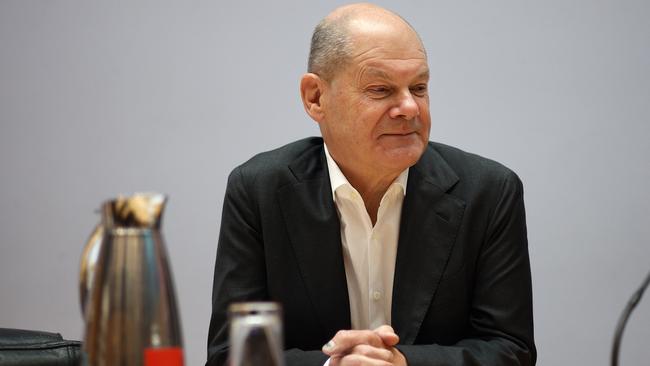German president steps in as Olaf Scholz loses grip on power
Frank-Walter Steinmeier will mediate discussions between parties deadlocked over the date for early elections brought on by the collapse of Chancellor Olaf Scholz’s government.

German President Frank-Walter Steinmeier has stepped in to mediate discussions between parties deadlocked over the date for early elections brought on by the collapse of Chancellor Olaf Scholz’s government.
Germany has been in political limbo since the liberal FDP withdrew from Scholz’s three-way coalition last week, depriving his government of a parliamentary majority.
Steinmeier is holding talks with party representatives “with a view to his role to create understanding”, a source in the president’s office told AFP.
As well as being in “close contact” with Scholz and conservative opposition leader Friedrich Merz, Steinmeier also spoke to Vice Chancellor Robert Habeck, who will lead the Greens into the election, the source said.
Scholz last week set out his intention to hold a vote of confidence – a key step on the way to dissolving parliament and holding new elections – on January 15.
The planned date for the vote in parliament would put the country on course for an election in late March.
But the conservatives have pressed the Chancellor to hold the vote as soon as Wednesday, opening the way for an election in January.
Scholz’s spokesman Steffen Hebestreit told reporters on Monday that “the chancellor will not be bringing a vote of confidence on Wednesday”.
Scholz has signalled openness to an earlier confidence vote, saying Sunday that it could happen this year “if all sides agree”.
But the chancellor wants to make progress on key legislation, such as welfare reform and constitutional safeguards, before parliament is dissolved.
Scholz suggested that Merz should hold talks with parliamentary leaders over a date but the proposal was rejected out of hand by the opposition.
The Greens, Scholz’s remaining coalition partner, have also called for clarity on the election timetable, with outgoing leader Ricarda Lang saying the party was “prepared for anything”.
The final date for a confidence vote was however down to Scholz, Habeck told reporters Monday.
“Ultimately, the decision is his,” Habeck said.
If, as expected, Scholz loses a confidence vote, under the constitution Steinmeier would have 21 days within which to dissolve parliament.
An election must then be held within 60 days from the date of dissolution. On Monday, national election co-ordinator Ruth Brand appealed for the maximum possible period to be applied.
“In order to best meet the challenges in organising an election before the end of the parliamentary term, the time period of 60 days between the dissolution of parliament and the election should be used in full,” Brand said in a statement.




To join the conversation, please log in. Don't have an account? Register
Join the conversation, you are commenting as Logout